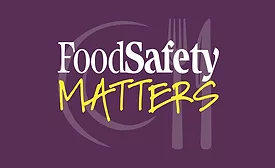Home » Keywords: » food fraud
Items Tagged with 'food fraud'
ARTICLES
Buyer-Led Supply Chain Screening: Establish Trust Without Betting the Business
Regulators increasingly expect the organization placing product on the market to have a defensible basis for supplier decisions
February 11, 2026
Beyond Borders: Food Fraud in Global Supply Chains
Conducting a food fraud vulnerability assessment helps identify potential weaknesses in the supply chain and assist in establishing effective controls to mitigate those risks
December 10, 2025
Never miss the latest news and trends driving the food safety industry
Newsletters | Website | eMagazine
JOIN TODAY!Copyright ©2026. All Rights Reserved BNP Media.
Design, CMS, Hosting & Web Development :: ePublishing










